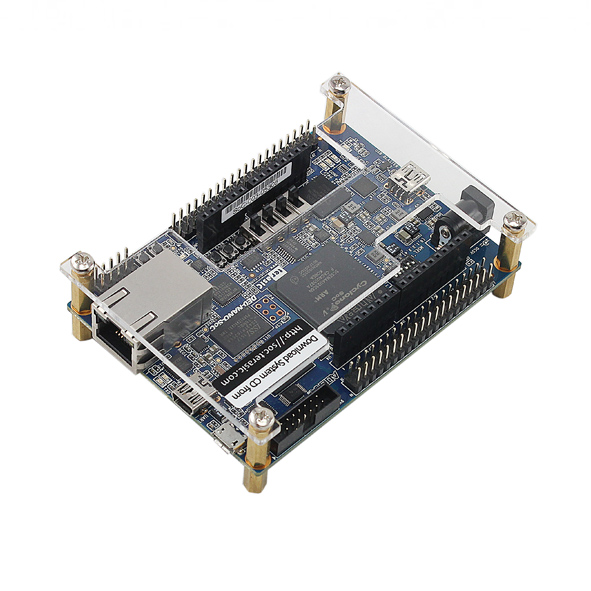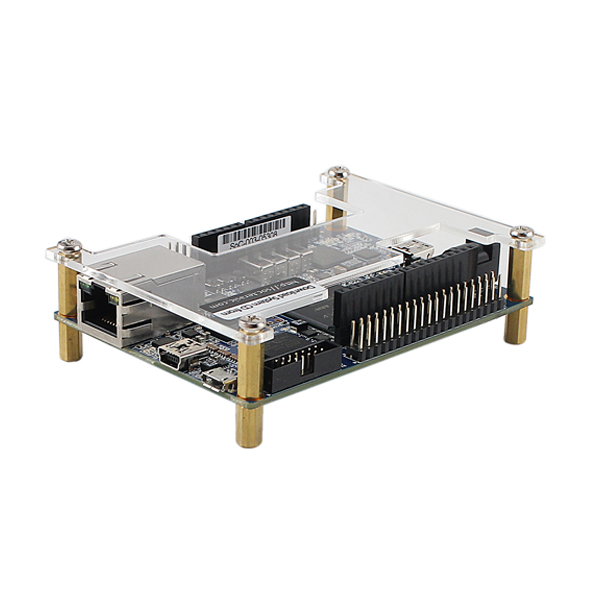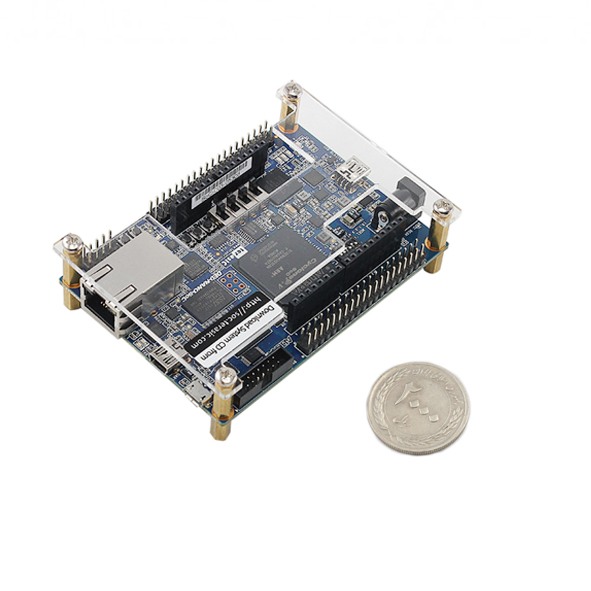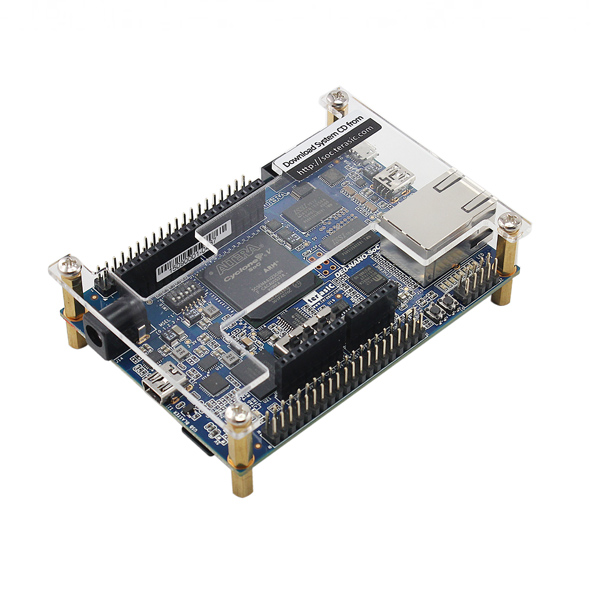5 از 5.0 با 9 رای
برد Altera FPGA DE0 Nano SoC محصول Terasic
جهت دریافت User manual و سایر اطلاعات تکمیلی برد FPGA به این لینک مراجعه نمایید.
Development and Education Board
The DE0-Nano-SoC Development Kit presents a robust hardware design platform built around the Altera System-on-Chip (SoC), FPGA, Which combines the latest dual-core Cortex-A9 embedded cores with industry-leading programmable logic for ultimate design flexibility . Users can now leverage the power of tremendous re-configurability paired with a high-performance, low-power processor system. Altera's SoC Integrates an ARM-based hard processor system (HPS) consisting of processor, memory and peripherals interfaces seamlessly tied with the FPGA fabric using a high-bandwidth interconnect backbone. The DE0-Nano-SoC development board is equipped with high-speed DDR3 memory, analog to digital capabilities, Ethernet networking, and much more That promise many exciting applications.
The DE0-Nano-SoC Development Kit contains all the tools needed to use the board in conjunction with a computer That runs the Microsoft Windows XP or later.
What's different between the DE0-Nano-SoC kit and the Atlas-SoC kit?
The hardware is the same for the DE0-Nano-SoC kit and the Atlas-SoC kit. The only difference is the getting-started process for the two kits. Users can freely use the DE0-Nano-SoC kit resources on the Atlas-SoC kit and vice versa.
The DE0-Nano-board SoC has many features That allow users to implement a wide range of designed circuits, from simple circuits to various multimedia projects.
The Following hardware is provided on the board:
FPGA Device:
Altera Cyclone® V SE 5CSEMA4U23C6N device
Serial configuration device - EPCS128
USB-Blaster II onboard for programming; JTAG Mode
2 push-buttons
4 slide switches
8 green user LEDs
Three 50MHz clock sources from the clock generator
Two 40-pin expansion header
One Arduino expansion header (Uno R3 compatibility), can connection with Arduino shields.
One 10-pin analog input expansion header. (Shared with Arduino analog input)
A / D converter, 4-pin SPI interface with FPGA
HPS (Hard Processor System):
925MHz Dual-core ARM Cortex-A9 processor
1GB DDR3 SDRAM (32-bit data bus)
1 Gigabit Ethernet PHY with RJ45 connector
USB OTG port, USB Micro-AB connector
Micro SD card socket
Accelerometer (I2C interface + interrupt)
UART to USB, USB Mini-B connector
Warm and cold reset button reset button
One user button and one LED user
LTC 2x7 expansion header




.jpg)
.jpg)